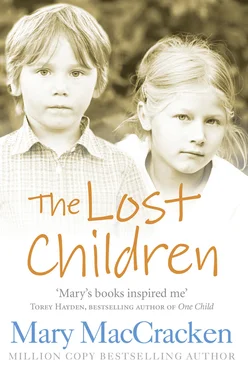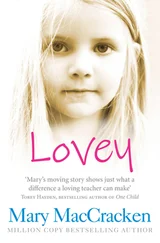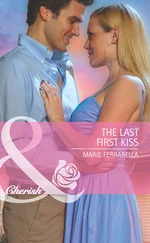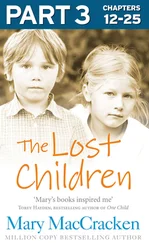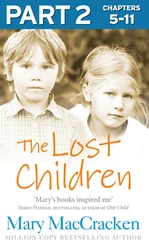The rest of the memory is blurred. I know I asked many questions and she replied with words like “emotionally disturbed,” “schizophrenic,” “autistic,” which rolled across my ears as sounds rather than words, almost meaningless to me then. She mentioned the school’s tremendous financial needs, the ratio of four children to one teacher, the newness of the field, the lack of agreement as to causes: some experts citing heredity, others environment, still others, biochemical causes. She spoke of the waiting list of children they could not accommodate and her dream of a new building, a larger school.
“The children?” I asked. “Can you tell me a little more about the children?”
“Well, as you can see,” she said, “they are physically healthy, attractive children. Their intelligence is average or above average, but they’re ill, and this illness causes them to function far below their age level, to live inside themselves and shut out the world. They are not sure who they are. They have great difficulty with language, with relationships, with other people; their behavior is often bizarre, puzzling.”
I stayed well over an hour, fascinated, intrigued, forgetting the time until I heard the children gathering in the lunchroom.
But excitement bubbled inside me, could not be put down. I wanted to teach there. Absurd? Perhaps. But I wanted it, had to do it, knew that I could. Unsure of many things, I was sure of this. One last question: What qualifications did her teachers need?
The Director smiled, “Certification in special education – preferably a master’s degree in teaching the emotionally disturbed – a listening heart and a strong back.”
I thanked her. My own heart was very quiet. I hadn’t even finished Wellesley, having left at the end of my sophomore year to marry Larry.
But all summer long the children of the school walked through my dreams, and in September I went back to the school to ask if I could work there as a volunteer teacher’s aide two days a week. The morning was warm and the windows of the school were open, and I heard again the piano as I climbed the wide wooden steps.
More strongly than ever the déjà-vu feeling returns; perhaps not this same school, but somewhere, sometime, I worked in a school such as this. There is a remembered knowledge that is certain without being specific.
I find the Director in her office.
“Good morning,” she says. “Can I help you?”
“I’m Mary MacCracken,” I remind her. “I was here last June. I … uh. Well, what I wondered was … do you think it would be possible for me to work as a volunteer with one of your teachers?”
“Oh, yes, I remember now. You were here with the other woman from the Junior League. Yes. Well now, let’s see. Yes … I think we’ll put you as a teacher’s aide with Helga. We’re delighted to have you, Mrs. … er – uh …”
“Mary,” I say. “My name is Mary.”
“Yes, of course. Mary. Go right on up to Helga’s room. As I say, we’re delighted to have you.”
I climbed the empty stairs slowly. There was no one in the room at the top of the stairs. As I stood in the hall indecisively a boy of perhaps nine or ten raced by me, his turtleneck shirt pulled completely over his head, screaming, “Jesus Christ, gonna go to Camp Lookout! God save us all!” He thundered down the stairs, and I wondered how he was able to judge their height and depth with his eyes covered.
A man came out of one of the rooms along the hall, smiled at me, and called softly to the boy: “Hey, Tom, it’s okay. Camp’s over, you’re in school,” and he walked slowly down the stairs toward the boy, who was now hesitating on the bottom step.
I continued walking along the long upstairs hall, looking in classrooms, searching for Helga’s room. They were all empty except for one classroom. A small girl watched in fascination an empty turntable revolve. A gray-eyed boy sat beside her, smiling and rocking back and forth, back and forth, until a young woman rose from the table where she was mixing paints and touched him, blocked the rocking with her hand, and he followed her back to the paint table.
A kaleidoscope of impressions was whirling through my head. Was this teacher Helga? And would she, too, be “delighted” to have me? As it turned out, she was not.
I found her finally in the bathroom with her class of four children. She was bent over the toilet bowl with a rubber plunger.
“God damn fucking stopped-up toilet. How can you toilet-train a child when the stupid toilet doesn’t even flush? Who are you?”
“Mary,” I answer. “The Director sent me to be your new volunteer teacher’s aide.”
Helga wields the rubber plunger even harder now – brown-gray hair flying straight out from her head, glasses slipping to the end of her nose. She must be fifty, arms strong and muscular, moving up and down, everything about her alive, filled with vitality. She is wearing a cotton housedress, and under it I can see wide shoulders, full breasts, narrower waist and hips – her legs strong and bare above worn, wet sneakers.
“For Christ sake,” she says in a strong German accent. “How many times do I have to tell her I don’t want any shitty volunteers? I have enough to do with the children. Go on now. Go tell her to assign you to somebody else.”
But I do not want to go. Intuitively I recognize in Helga the essence of the master teacher. I know that she is the one I want to watch; hers are the techniques I want to learn. In this school I do not feel humble or frightened or inadequate, as I often do with Larry. I am at home here and I merely smile at Helga and follow her back to her classroom, watching her quietly. I had never heard a woman swear like that before. The women I had known most intimately were lovely, quiet women – clean and soft, smelling faintly sweet, dressed always in good taste. I survey Helga in her cotton housedress and worn sneakers, and for the first time I wonder what “good taste” means.
Sunlight lies across the green linoleum floor. The walls are covered with children’s primitive finger painting; a large rocking chair is in front of the window, a low table with chairs in the middle of the room, a sandbox on the far side.
One of the boys stands in the sunlight watching the specks of dust move in the golden air currents. He is very small, perhaps five or six, with a small, square face and large gray eyes, black at the center.
Helga speaks to him. “Take off your sweater, Chris. Hang it up on the hook.”
Still he stands without moving, arms slack; only his eyes follow the golden specks of dust. I do not move to help, only watch as I sit on a corner of the sandbox, filling a muffin tin with sand and turning my muffins on a wooden board. Red-haired Jimmy sticks a crayon in each one and then pushes them back to the center of the sandpile.
Helga ignores Chris, giving him a chance to act on his own volition. She notices me and is obviously annoyed that I am still there. She no longer even addresses me directly but instead mutters toward the window concerning me.
“God in heaven. Give me patience. It is not enough that I must teach these children all day with no equipment, only leftover material and promises. Now they send me volunteers. Over and over I have told them I do not want the shitty volunteers. Volunteers to do for the children what they should do for themselves. Do they listen? No. Jesus, deliver me from these volunteers. They should take their shitty good works somewhere else.”
The last is delivered pointedly in my direction and I bend my head in concentration on my muffins.
One last remark from Helga: “Ah – well. It does not usually take us too long to get rid of them, does it?”
Читать дальше
